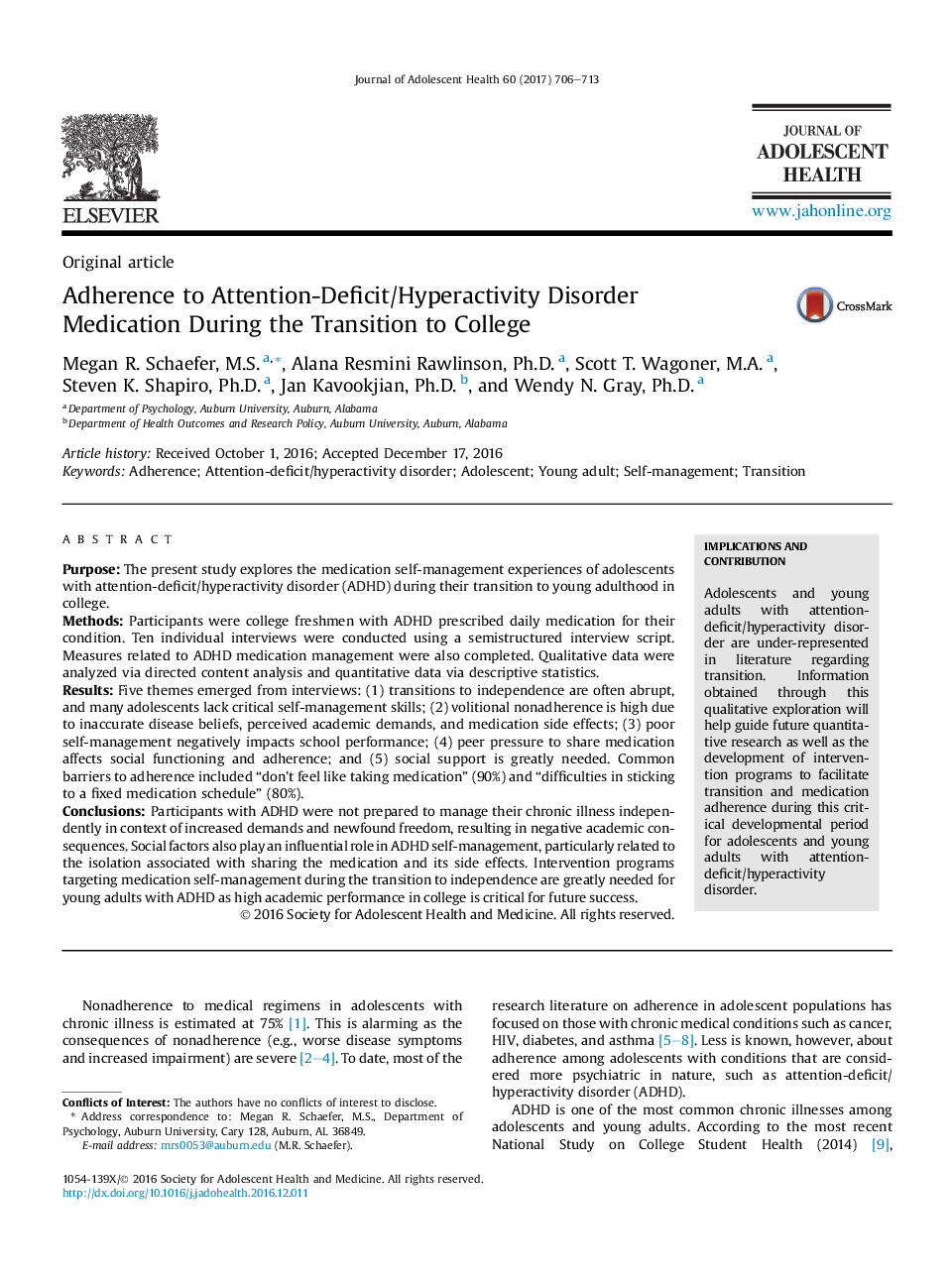| Article ID | Journal | Published Year | Pages | File Type |
|---|---|---|---|---|
| 5121275 | Journal of Adolescent Health | 2017 | 8 Pages |
PurposeThe present study explores the medication self-management experiences of adolescents with attention-deficit/hyperactivity disorder (ADHD) during their transition to young adulthood in college.MethodsParticipants were college freshmen with ADHD prescribed daily medication for their condition. Ten individual interviews were conducted using a semistructured interview script. Measures related to ADHD medication management were also completed. Qualitative data were analyzed via directed content analysis and quantitative data via descriptive statistics.ResultsFive themes emerged from interviews: (1) transitions to independence are often abrupt, and many adolescents lack critical self-management skills; (2) volitional nonadherence is high due to inaccurate disease beliefs, perceived academic demands, and medication side effects; (3) poor self-management negatively impacts school performance; (4) peer pressure to share medication affects social functioning and adherence; and (5) social support is greatly needed. Common barriers to adherence included “don't feel like taking medication” (90%) and “difficulties in sticking to a fixed medication schedule” (80%).ConclusionsParticipants with ADHD were not prepared to manage their chronic illness independently in context of increased demands and newfound freedom, resulting in negative academic consequences. Social factors also play an influential role in ADHD self-management, particularly related to the isolation associated with sharing the medication and its side effects. Intervention programs targeting medication self-management during the transition to independence are greatly needed for young adults with ADHD as high academic performance in college is critical for future success.
